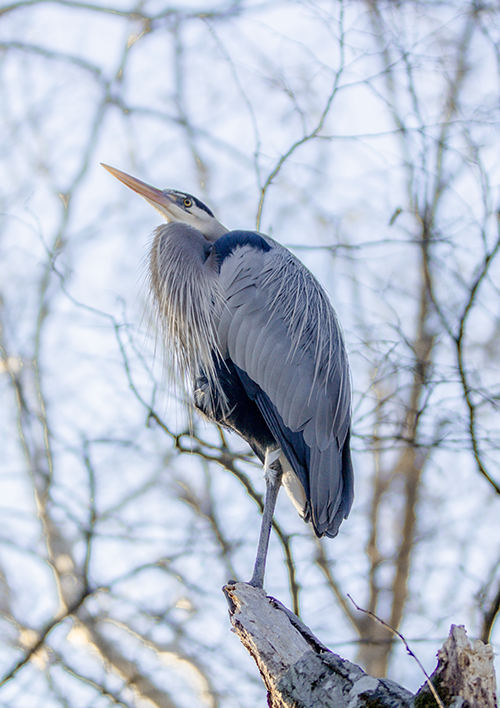While I was scrolling on Instagram one day, my friend with type 1 diabetes posted about visiting the U.S. national parks for free, for life, with an Access Pass. That got me thinking: Would I be eligible for an Access Pass because of my psychiatric disability? Being outdoors and going to the parks is an excellent way to ground me in nature.
I was diagnosed with post-traumatic stress disorder (PTSD) and major depressive disorder (MDD) in 2021. Though it is typically more common for veterans to have PTSD compared to civilians, I am one of the civilians with PTSD. It is also typical that almost half of those with PTSD are also diagnosed with MDD.
When I surround myself with nature, I zone in on all the sounds, smells, and sights stirring my senses. I have learned that nature grounds me when I’m in a clouded mindset, even if it’s just a temporary “fix.” The national parks are a great resource to admire the creations on our earth, and it’s even better for those with disabilities to take advantage of this free Access Pass.
Studies show significant benefits of spending time in nature, including greater creativity, lower levels of stress, increased self-esteem, and reduced anxiety. In fact, MHA recently partnered with L.L.Bean to spread the word about the importance of being outdoors and connecting with nature to improve mental health. Join the Feel Good Challenge this month to help us reach our goal of 500,000 hours outside, including at national parks!
Who qualifies?
Qualifying for a pass and using its benefits is easier than you might think, but you must prove you have a permanent disability. According to the Access Pass website, a permanent disability is a “permanent physical, mental, or sensory impairment that substantially limits one or more major life activities, such as caring for oneself, performing manual tasks, walking, seeing, hearing, speaking, breathing, learning, and working.”
The National Park Service says you will then need to get documentation from one of the following:
- A statement by a licensed physician that includes the disability, that the disability limits one or more aspects of your daily life, and the nature of those limitations;
- A document issued by a federal agency, such as the Veterans Administration, or Social Security Administration; or
- A document issued by a state agency, such as a vocational rehabilitation agency.
Ways to get the pass
There are three main ways for eligible folks to obtain an Access Pass: In person at an Access Pass-carrying national park, online, or by mail.
- In-person (the free option): Check out this guide or contact a specific park to see if they offer the pass. Bring to the payment gate the proof of disability and valid identification of the person who will use the Access Pass.
- Online ($10): Make an account and upload files for proof of disability after you place the order.
- Mail ($10): Fill out this application and mail it, along with a copy of your proof of eligibility, to:
USGS
Attn: Access Pass Box 25286
Denver, CO 80225
Once you obtain the pass, all you have to do is bring your access pass to the park, hang the tag in your vehicle, and show your valid ID.
For more information on getting a pass, including how to submit documentation by mail, visit the USGS website, call 1-888-275-8747, or email [email protected].
My experience with the Access Pass
The entire process of receiving an Access Pass was smooth for me. I was able to use the signed statement from my psychiatrist stating I have a disability under the Americans with Disabilities Act – originally used for my emotional support animal – since it was within the year of its validity (these letters are invalid after one year).
I went to my nearest national park that distributed Access Passes, Great Falls Park in Virginia, and asked the park ranger at the gate if I could receive an Access Pass. I showed them my disability statement and valid ID, they approved that I was eligible, and then all I had to do was sign a document containing my name and Access Pass number. I hung my vehicle tag and was ready to explore.
The park was a wonderful experience. The waterfalls roared, I sunbathed with a friend, and was even lucky enough to spot a great blue heron. I had enjoyed this park before, but I did not know the Access Pass existed, or that I was eligible to sign up for a free one. Now I have an excellent excuse to enjoy the outdoors more and the motivation to go outside when I’m not feeling great mentally. If you can go outside, consider taking advantage of the national parks, and if you have a disability, take advantage of that Access Pass.

Great Blue Heron at Great Falls Park (Credit: Janelle Gonzaga)
Learn more about nature and the outdoors by following along with MHA’s 2023 Mental Health Month campaign, Look Around, Look Within. We’re exploring how our surroundings impact individual and community mental wellness. Download our free outreach toolkit, find details on related events, and learn how you can get involved at www.mhanational.org/may.

